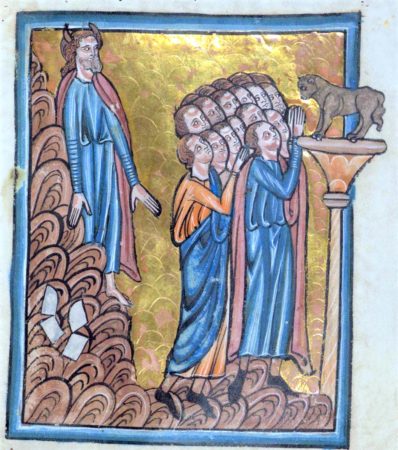Podcast: Play in new window | Download
Subscribe: Spotify | Email | RSS
 In this episode, goaded by several listeners, I give some of my own thoughts about God and time. For the most part I don’t take the time to explain the various competing views.
In this episode, goaded by several listeners, I give some of my own thoughts about God and time. For the most part I don’t take the time to explain the various competing views.
Without giving a big lecture of philosophies of time, a make a few basic distinctions, and focus on our knowledge of real change.
I’m on the side of those philosophers who advocate Presentism and an “A-theory” approach to time, and on the side of those who believe we have “libertarian” freedom – that sometimes, given all the influences on us and our whole surroundings, there is more than one choice that we can make. This is sometimes called an absolute (as opposed to a merely hypothetical or conditional) ability to do otherwise than we in fact did. For example, you love Coke and Pepsi equally well, but on this occasion you chose Coke. But nothing whatever forced you to chose Coke – you might well, in those very circumstances, have chosen Pepsi. And maybe the soda fountain was low on syrup – so the Coke doesn’t taste right, and you regret the choice – you wish you had chosen Pepsi, and of course you know that you could have, back when you were standing in front of both nozzles.
In the last twenty minutes or so, I focus on an interesting incident in Exodus 32, in the aftermath of the Hebrews’ fall into idolatry (the Golden Calf incident). On the face of it, this text presents God as literally changing his mind; he was on track to wipe out the Israelites and start over – or at least, he was thinking about it – but after a conversation with Moses, he no longer had that in mind.
Really? How could that happen? I reflect a bit on what it means for their to be a kind of friendship between God and humans, and how this relates to the subject of prayer. But note that clearly, if God even could change his mind, then he is “in time,” temporal. In my view, scriptures plainly assume that at various times God is doing X, that he has just done Y, that he is about to do Z, etc.
These subjects of human freedom, time, divine providence, divine foreknowledge, prayer, predestination, and fatalism are huge, and the discussions go back to the 4th c. BCE. Perhaps some time I’ll spend couple of months on a series on these themes, going through the long history of Christian discussions of these topics, and doing more justice to the alternatives to my views.
Podcast listeners – are you interested in these topics?
- podcast 80 – Foreknowledge, Freedom, and Randomness
- 1 Samuel 18; Exodus 32, Exodus 32:14; Isaiah 38; Genesis 18:22-33.
- Dr. John Sanders’s open theism site
- Sanders’s summary of open theism
- podcast 141 – Dr. R.T. Mullins – Is God timeless?
- This week’s thinking music is “Strength of Knowing“ by Jesse Spillane.



Congrats on the new job, and the move. Tennessee is a gorgeous state and a jewel of the South (though Nashville proper is starting to become overrun by the hipster crowd around Vanderbilt). I’m just south of you in Alabama, and used to go up to visit my Dad when he lived in the Nashville suburbs. Congrats also on being about to attend your new church. I’ve watched and listened to some of Gill’s arguments in my own study and investigation of the Bible.
Thanks, Douglas. Tennessee is indeed a great state. Love the people and the church.
Very good series on time. I will give my take as to where I stand on this issue as of now. I agree that time is the best and only way to measure change. But I don’t think that time is dependent on change i.e. that if change did not occur, time does not change. I think that time goes on whether or not change occurs. We can depend on physical aspects (like rotations and revolutions of earth, expansion of spacetime manifold, increase in entropy, frequency of vibrations of an atom etc.) to measure time for our purposes, but I don’t think that time depends on those physical aspects. So I think that time exists independent of change and any physical aspects used to measure time. Regarding God’s relationship to time, I don’t have a formed opinion yet. I don’t know what to make of about the language of God being outside time or timeless prior to creation and being in time post-creation. I don’t understand what would being in time and outside time mean and difference of it in reality. I am inclined to think that if God exists, he is in time. One other way to look at it would be to say that God is not limited by time and space. I came upon this idea when I heard a Hindu Advaita (non-dualist) philosopher monk explicate about relationship between Brahman and time and space in that fashion and I found it bit more rational to understand. His point was that Brahman was not limited by time because Brahman did not come into existence or go out of existence at any point in time unlike particular beings that come into existence and go out of existence (so both God and time exists eternally). Similarly Brahman is not limited by space because Brahman is everywhere and therefore not limited to one part of the space like all particular beings are.
Comments are closed.